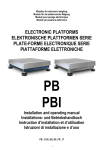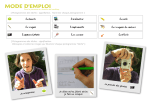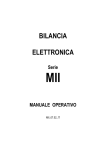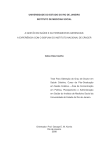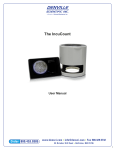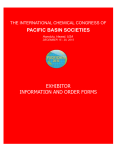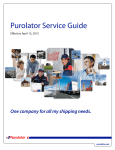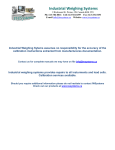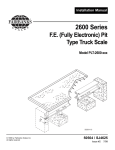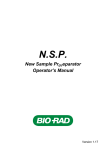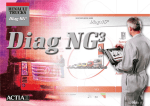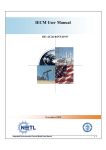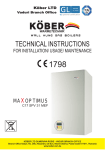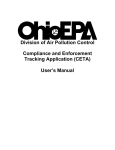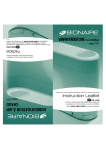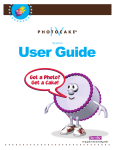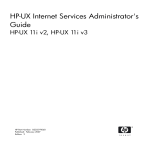Download Solid Waste System Operating Manual
Transcript
Hennepin County Department of Environmental Services Solid Waste System Operating Manual Hennepin County Department of Environmental Services Solid Waste Division 701 Fourth Avenue South, Suite 700 Minneapolis, Minnesota 55415-1842 Hennepin County Solid Waste System Operating Manual (Rev. 11/11) Table of Contents I. Introduction A. Purpose B. Governing Ordinances C. Hauler Contacts II. Delivery of MSW to Hennepin County A. Acceptable Types of Wastes For Delivery B. Facilities: Locations and Operating Hours C. Operating & Safety Guidelines D. Using HERC’s Automated Scale House III. Fees and Charges A. Tip Fee B. Special Fees and Handling Charges C. Payment of Tip Fees and Special Fees Appendices A. Unacceptable Wastes at Hennepin County Facilities B. HERC Tipping Floor and Safety Procedures C. Solid Waste Fees and Charges D. List of Codes for Invoicing E. Solid Waste Management Fee Fact Sheet F. Source Separated Organics Delivery Hennepin County Solid Waste System Operating Manual (Rev. 11/11) I. INTRODUCTION Hennepin County operates an integrated mixed municipal solid waste (MSW) management system for the benefit of its citizens and businesses. The County’s system employs waste reduction programs, recycling and reuse services, energy recovery through mass burn, and safe removal of harmful or banned materials from the MSW waste stream. The Department of Environmental Services is responsible for managing this system. Waste-to-energy is an important part of the County's waste management system. MSW that is delivered to the County’s resource recovery facility is converted to electricity. The Department of Environmental Services encourages businesses and residents to first reduce the amount and toxicity of the waste they generate; to recycle or reuse any product whenever possible; and to properly manage all household or business hazardous waste. A. Purpose This manual is a guide for haulers who deliver MSW to Hennepin County’s solid waste facilities. B. Governing Ordinances Hennepin County has three ordinances – No. 2, No.15 and No.17 - which apply to the collection of MSW in the County. It is important to familiarize yourself with the requirements in these ordinances (copies are available upon request). Nothing in this manual should be considered to override the requirements in any of these ordinances. In addition to Hennepin County ordinances, you must comply with Minnesota Statutes, State Agency Rules and local municipal requirements. Hennepin County Ordinance No. 2 established standards for disposal of solid waste within Hennepin County and the operation of solid waste facilities in Hennepin County. The ordinance also requires haulers to dispose of waste only at permitted facilities. Hennepin County Ordinance No. 15 established the Solid Waste Management Fee. The revenue collected from this fee is used to fund environmental programs such as waste reduction, reuse, recycling, and problem materials management. This ordinance requires haulers to bill and collect a solid waste management fee from their MSW customers. The rate of the fee is 9% for residential customers and 14.5% for non-residential generators. The hauler remits all collected fees monthly to the County. For more information on the Solid Waste Management Fee program please see Appendix E. Hennepin County Ordinance No. 17 requires haulers to obtain a license to haul MSW in the County. Hauler licensing is part of a regional program that includes Anoka, Carver, Dakota, Ramsey, and Washington counties. C. Hauler Contact If you have questions on waste hauling in Hennepin County or wish additional information, please call Marc Artmann at (612) 348-7813. This document is also available on our Hennepin County Solid Waste System Operating Manual (Rev. 11/11) website: http://www.hennepin.us/files/HennepinUS/Environmental%20Services/Solid%20wast e%20planning%20and%20haulers/Operating%20Manual%20October%202009%20 Revision.pdf The remainder of this page was intentionally left blank. Hennepin County Solid Waste System Operating Manual (Rev. 11/11) II. DELIVERY OF MSW TO HENNEPIN COUNTY FACILITIES A. Acceptable Types of Waste for Delivery 1. MSW Generated Within Hennepin County Hennepin County’s facilities accept MSW generated in Hennepin County, but certain waste materials may not be delivered to the facility. These types of wastes are Unacceptable Wastes and are identified in Appendix A. For a definition of mixed-municipal solid waste, see Minnesota Statutes 115A.03, Subdivision 21. 2. MSW Generated Outside Hennepin County Hennepin County will accept MSW that was generated outside the county only if the Solid Waste Division has given prior approval, and is not Unacceptable Waste. B. Facilities: Locations and Operating Hours Facility Address Hours of Operation 4:00 a.m. - 10:00 p.m. Mon. - Fri. Hennepin Energy Resource Company (HERC) Permit No SW-396 505 6th Ave. North 6:00 a.m. - 6:00 p.m. Saturday Minneapolis, MN 7:00 a.m. - 3:00 p.m. Sunday 4:00 a.m. - 12:00 p.m. Holidays* Brooklyn Park Transfer Station (BPTS) Permit No. SW-344 8100 Jefferson Hwy. 7:00 a.m. - 3:00 p.m. Mon. - Fri. Brooklyn Park, MN 7:00 a.m. - 12:00 p.m. Saturday Brooklyn Park Transfer Station is closed on New Years Day, Memorial Day, Independence Day, Labor Day, Thanksgiving Day and Christmas Day. Please deliver to HERC on these days. The county may limit delivery to HERC during maintenance outages. *When a holiday falls on a Saturday or a Sunday, normal weekend hours are in effect at HERC. Hennepin County Solid Waste System Operating Manual (Rev. 11/11) C. Operating & Safety Guidelines All haulers are responsible for complying with the following operating and safety requirements of Brooklyn Park Transfer Station when delivering waste. Please refer to Appendix B for tipping floor and safety procedures at HERC. 1. Personal Protective Equipment. For your safety, Hennepin County requires that you wear the following personal protective equipment while dumping at our facilities: • Hard hats (must comply with ANSI Z89.1 – 1997 and be rated industrial Class G). • Safety glasses (eye protection meeting ANSI Z87.1 – 1989). • Sturdy footwear in good condition (canvas shoes, sneakers and sandals, or shoes with badly worn or thin soles are not acceptable). • Reflective vests (must be a type II as specified by ANSI/ISEA Standard 107-1999 and Minnesota Rule 5205.0030). 2. Additional Operating & Safety Procedures. The following safety precautions are to be followed by all vehicle drivers and helpers to help prevent accidents and injuries on facility tipping floors. • Follow the directions of the facility's floor manager. • Weigh in and weigh out of the facility. • Yield to facility vehicles, such as loaders and trailers. • Observe speed restrictions • Watch for tipping floor hazards; exercise caution and good judgment • Do not possess, consume or be under the influence of drugs or alcohol. • No smoking • Do not ride on the back of a vehicle or walk along a vehicle when the vehicle is moving. Do not ride or be near the rear of a vehicle when the truck is dumping its load. • When traveling with an assistant, only one of you should exit from the vehicle at a time. When out of the vehicle, stay within close proximity of your truck at all times. Hennepin County Solid Waste System Operating Manual (Rev. 11/11) • All loads at HERC will be dumped on the tip floor. All loads at Brooklyn Park Transfer Station are to be dumped directly into the pit unless directed by the transfer station operator. • Hennepin County will notify haulers who do not follow these procedures. The County may restrict access to its transfer station by haulers who continually disregard our safety procedures. Please read additional information on using the HERC facility in Appendix B. 3. If you deliver MSW to Brooklyn Park Transfer Station, your vehicles must have a valid Vehicle Identification Number assigned to it by Hennepin County. The stickers that list the number must be: a) Affixed to the left side of the front bumper and to the vehicle cab (see Figure 1); and b) Readily visible and legible. Figure 1: TRUCK NUMBER DECAL PLACEMENT Hennepin County provides two Vehicle Identification decals to haulers using County facilities. Please affix them as shown below. Hennepin County Solid Waste System Operating Manual (Rev. 11/11) 4. To Replace your Hennepin County Vehicle Identification Sticker because the original has become worn, unreadable, or lost, contact us at (612) 348-7813. 5. To receive a Temporary Vehicle Identification Number contact us at (612) 348-7813. Temporary vehicle identification numbers are for short-term use only. 6. Delivering Unacceptable Wastes may cause the facility's floor manager to reject all or part of a load. (See Appendix A for a list of Unacceptable Wastes). If the facility rejects a full or partial load: a) The facility manager will provide a statement on why the waste was rejected; and b) The hauler will be responsible for: 1. Costs to reload the waste onto your truck or from removing the wastes from the facility (this includes proper disposal); or 2. Hennepin County at its discretion may remove and dispose of the waste. The hauler will be responsible for any costs incurred by the County. D. Using HERC’s Automated Scale House The HERC facility uses an automated scale house. Haulers using HERC must enter their truck number that is provided by Environmental Services into the keypad next to the scale. Call (612) 348-7813 if you need a new or replacement truck number. The remainder of this page was intentionally left blank. Hennepin County Solid Waste System Operating Manual (Rev. 1/11) III. FEES AND CHARGES A. Tip Fee The Hennepin County Board of Commissioners determines the Tip Fee and other Special Fees paid by haulers using our facilities. Prior to any changes in fees, the Board will hold a public hearing. A listing of the current fee schedule is in Appendix C. In addition, the Board also approves individual Waste Delivery Agreements with haulers. The Tip Fee is multiplied by the number of tons you deliver to County facilities to determine your cost. B. Special Fees and Handling Charges Hennepin County charges Special Fees and Handling Charges for certain materials delivered to our facilities. The current fees for those materials are listed in Appendix C. C. Payment of Tip Fees and Special Fees When you deliver MSW to Hennepin County solid waste facilities you are responsible for paying all applicable Tip Fees, Special Fees, and Handling Charges. 1. Credit Account Establishment. To establish an account, call (612) 3487813 or (612) 348-4491. All accounts have credit limits. A hauler’s credit limit is subject to change based on analysis by Hennepin County of the hauler’s activity level, payment practices and credit worthiness. Hennepin County reserves the right to request and obtain financial information and other credit information deemed necessary to support the credit granted to the hauler. Refusal to provide information requested may result in a reduction to the hauler’s credit limit. If you do not have an account with Hennepin County, you must pay the tip fees and any special fees by check or currency at the time of delivery, before leaving the facility. 2. Billing Invoice and Payment. If you have a credit account with Hennepin County, you will receive a bill each month for your previous month’s deliveries including all special fees and handling charges. Payment is due to Hennepin County by the last day of the month in which you receive the bill. Appendix C lists item codes commonly appearing on your bill. 3. Late Fees. Tipping fee payments are due by the last day of the month following the end of the billing period. Late fees will be assessed to your account if we do not receive full payment by the due date. The late fees are calculated using a daily periodic rate based on an annual percentage rate of 18%. Your payment must be received on or before Hennepin County Solid Waste System Operating Manual (Rev. 11/11) the invoice due date to avoid late fees. 4. Currency Only Status. Your account can by placed on “Currency Only” status if your account balance is not timely paid or if the check you presented as payment is not honored by the bank (e.g. insufficient funds, closed account, etc.). You will be required to pay by currency (no checks accepted) for each load of waste when it is delivered. 5. Credit Renewal. If you have been placed on “Currency Only” status, you may be able to renew your credit status by paying off the outstanding balance and reapplying for credit status. 6. State Solid Waste Management Tax. You will be charged the State Solid Waste Management Tax for all waste deliveries unless you give Hennepin County a completed SWMT-10 certificate issued by the State of Minnesota. 7. Fee for Non-Sufficient Funds, Closed Accounts. If your check to Hennepin County is not honored by your bank (e.g. non-sufficient funds, closed account), you must, upon receipt of notification from Hennepin County, immediately remit to the County, in certified funds or cash, the value of the dishonored check plus $30.00. 8. Disputed Account. If you disagree with your monthly bill, you are still required to pay the bill in full. You can then request a resolution of the disputed amount in writing to: Division Manager Financial Management & Accounting Division 701 Fourth Avenue South, Suite 400 Minneapolis, Minnesota 55415-1843 If the disputed amount or any portion of it is resolved in your favor, Hennepin County will refund the disputed amount plus daily interest based on a rate of 1.5% per month. The remainder of this page was intentionally left blank. Hennepin County Solid Waste System Operating Manual (Rev. 11/11) APPENDIX A UNACCEPTABLE WASTES AT HENNEPIN COUNTY FACILITIES 1. agricultural and farm machinery 2. agricultural wastes 3. animal wastes, remains, and carcasses 4. asbestos 5. ash from incinerators, resource recovery facilities, and power plants 6. automotive fluids, including motor oil, oil filters, brake fluid, power steering fluid, transmission fluid, and antifreeze (MN statute 115A.916) 7. baghouse dust 8. batteries, including but not limited to auto (lead acid), button, rechargeable (MN statutes 115A.915 & 115A.9157) (lithium ion, nickel cadmium, nickel metal hydride, small sealed lead acid) 9. cordless devices that contain rechargeable batteries (such as drills and telephones) 10. electronic equipment, including, but not limited to: TVs, computers and peripherals (monitors, keyboards, printers, scanners), copiers, fax machines, telephones (cordless & cell/mobile), stereos, typewriters, VCRs, and other items containing cathode ray tubes 11. chemical catalysts 12. compressed gas cylinders, including, but not limited to propane tanks 13. construction and demolition materials, including drywall, concrete, asphalt, and roofing shingles 14. explosives 15. fluorescent light bulbs, compact fluorescent light bulbs, high intensity discharge lamps, and neon lights (MN statute 115A.932) 16. foundry sand 17. hazardous wastes Hennepin County Solid Waste System Operating Manual (Rev. 1/11) 18. hot or burning loads 19. industrial wastes 20. infectious, biological, and pathological wastes 21. liquid spills of nonhazardous materials, including chemical spill cleanings 22. liquids (MN rule 7035.2535) 23. major appliances (MN statute 115A.9561), including air conditioners, dehumidifiers, freezers, furnaces, garbage disposals, microwaves, ovens/stoves, portable heaters, refrigerators, trash compactors, washers, dryers, and water heaters 24. materials that would cause bottom ash to become hazardous 25. mattresses and box springs 26. mercury and mercury-containing products (MN statute 115A.932), including but not limited to: appliances, button batteries, electric relays, electronics, fluorescent light bulbs, medical and scientific instruments, thermostats, thermometers, and tilt switches 27. metal film (e.g., Mylar®) – commercial loads 28. office furniture, including office dividers 29. pesticide containers 30. pesticides and herbicides from commercial sources 31. radioactive materials 32. rendering and slaughterhouse wastes 33. sludges 34. street sweepings 35. tires 36. transformers and ballasts 37. vehicle parts, including, but not limited to transmissions, motors, rear ends, fenders, and bumpers 38. waste containing more than 1 ppm polychlorinated biphenyl (more than 50 ppm polychlorinated biphenyl is hazardous waste) 39. waste that could spontaneously combust or that could ignite other wastes because of high temperatures Hennepin County Solid Waste System Operating Manual (Rev. 1/11) 40. yard waste including all tree waste 41. oversized materials (>12 inch diameter and 6 feet in length) APPENDIX B TIPPING FLOOR AND SAFETY PROCEDURES AT HENNEPIN ENERGY RESOURCE COMPANY (HERC) General • Site speed limit is 15 mph. • Tipping floor speed limit is 5 mph. • Obey all warning and traffic signs. • Watch for tipping floor hazards. Exercise caution and good judgment. • Do not possess, consume or be under the influence of drugs or alcohol. • No smoking. • Do not ride on the back of a vehicle or walk along a vehicle when the vehicle is moving. Do not ride or be near the rear of a vehicle when the truck is dumping its load. • On the tipping floor follow instructions from HERC employees. They may inform you which bay to use to dump your load – see Figure 1. Also follow all procedures required by your employer. • Do not leave your vehicle unattended, except when using the restroom. • No one is allowed within six feet of the pit, as marked on the tipping floor side walls. • When travelling with an assistant, only one of you should exit from the vehicle at a time. When out of the vehicle, stay within close proximity of your truck at all times. • When you have to release your tailgate or equipment: 1. Stop the truck so the back of the truck is 10 or more feet from the edge of the pit (as marked by the vertical yellow line on the tipping floor wall). See Figure 2. 2. After stopping at 10 feet, get out to release your gate or equipment, then reenter the vehicle- do not stand behind the back of an opened tailgate. Hennepin County Solid Waste System Operating Manual (Rev. 1/11) 3. After dumping, drive forward, and get out of the vehicle to relatch it. All boxes and hatches must be lowered and closed before approaching the tipping hall exit door. 4. Drive the truck away from the tipping location with your assistant in the vehicle. • All loads will be dumped on the tip floor. No loads will be allowed to dump directly into the pit unless directed by HERC employees. • The Department of Environmental Services will notify you or your employer if you do not follow these procedures. • Vehicles exiting the bays must yield to vehicles entering the tipping floor. Personal Protective Equipment For your safety, HERC requires that you wear the following personal protective equipment: • Hard hats (must comply with ANSI Z89.1 – 1997 and be rated industrial Class G). • Safety glasses (eye protection meeting ANSI Z87.1 – 1989). • Sturdy footwear in good condition (canvas shoes, sneakers and sandals, or shoes with badly worn or thin soles are not acceptable). • Reflective vests (must be a type II as specified by ANSI/ISEA Standard 107-1999 and Minnesota Rule 5205.0030). • Harness and a lifeline when working outside a tipping floor vehicle within 6 feet of the curb in front of the edge of the pit. The remainder of this page was intentionally left blank. Hennepin County Solid Waste System Operating Manual (Rev. 1/11) Hennepin Energy Resource Company (HERC) Hennepin County Solid Waste System Operating Manual (Rev. 1/11) South Door T/F Trailer Odor Control Box Bay 5 Bay 4 Pit Tipping Floor Bay 3 NON Proc. Bay 2 Metal Bin Bay 1 Tires Exit Air Lock Entrance Figure 1: Layout of Tipping Floor Hennepin County Solid Waste System Operating Manual (Rev. 1/11) Hennepin County Solid Waste System Operating Manual (Rev. 1/11) APPENDIX C HENNEPIN COUNTY SOLID WASTE FEES AND CHARGES 1. Tip Fee Gate Rate….…………………………………………………………. $60.00 per ton 2. Contract Tip Fee Rate…………………………….……………….please call (612) 348-7813 3. Source Separated Organics (Appendix F)……….……………………………$15.00 per ton 4. Charges for Materials Banned By Statute That Are Mixed With MSW Loads: A. Infectious/Pathological (Note 1) ………………………………..$400.00 per incident B. Hazardous Waste (Note 2)…..$200.00 per incident (plus cost of proper disposal) C. CRT Penalty Fee………………………………………………………$50.00 per CRT D. Appliances………………………………………………………..$50.00 per appliance E. Auto Tires………………………………………………………………...$15.00 per tire F. Truck tires (greater than 22” in diameter)……………….……………$25.00 per tire G. Yard Waste…..........................................................................$25.00 per ten bags H. Lead acid battery…………………………………………………....$25.00 per battery Note 1: Hennepin County does not accept infectious/pathological waste. Haulers are responsible for removing it if delivered to a County facility. Note 2: Hennepin County does not accept hazardous waste. A hauler will be billed for the special handling charge and the actual cost incurred by Hennepin County for appropriate disposal. 5. Charge for Oversized Material………………………………………............$15.00 each Large items such as rolls of carpet (greater than 6’ long), Hide-a-beds with metal frames, mattresses and box springs, large plastic molds (2’ square or more), or large rolls of plastic foil or paper (greater than 6’ long or greater than 1’ in diameter). 6. Charge For Untarped Load………………………………………………..Double Tip Fee 7. Charge for Hot Loads or Reloads………………………………………..............$100.00 8. Special Waste Disposal at HERC – This option is available for MSW streams the generator has identified as needing special handling and the assurance that it is destroyed. Under this option, the waste is placed into the incinerator when it arrives. The fees are in lieu of the standard tip fee. For pricing information, please call (612) 332-9423 or (612) 348-4491. Hennepin County Solid Waste System Operating Manual (Rev. 1/11) APPENDIX D HENNEPIN COUNTY – LIST OF CODES FOR INVOICING Facility Codes 51 – Brooklyn Park Transfer Station 57 – HERC (Hennepin Energy Resource Co.) 58 – Elk River Resource Recovery Facility PT = Payment Types 01 – Charge 02 – Cash 03 – Check 04 – No Charge MT = Material Types 01 – MSW by Ton (Gate Rate) 04 – MSW Contract Rate 08 – Hauler Recycle 12 – MSW Carver 46 – Mixed Cans 48 – Scrap Metal 58 – Source Separated 70 – Anoka County 71 – Dakota County 72 – Ramsey County 73 – Scott County 74 – Out of County 80 – Wright County 99 – MSW No Charge Special Fees Codes 10 – IW- Infectious Waste $400.00 60 – YW-Yard Waste per/10 bags $25.00 20 – HW-HW Penalty $200.00 70 – LA-Lead Acid Battery $25.00 30 – AP-Appliance Penalty $50.00 80 – OM-Oversized Material $15.00 40 – AT-Auto Tire $15.00 90 – UL-Untarped Load (Double Fee) 50 – TT-Truck Tire $25.00 100 – HL-Hot loads/reloads $100.00 Hennepin County Solid Waste System Operating Manual (Rev. 1/11) APPENDIX E HENNEPIN COUNTY SOLID WASTE MANAGEMENT FEE FACT SHEET FOR LICENSED SOLID WASTE HAULERS The Hennepin County Board of Commissioners (County Board) enacted Ordinance 15, effective on January 1, 1994, which imposes a Solid Waste Management Fee for solid waste management services provided by Hennepin County. Below are responses to haulers’ frequently asked questions about this fee. 1. What is the Solid Waste Management Fee? The Solid Waste Management Fee is the charge established by the County Board to fund environmental programs such as waste reduction and reuse, recycling, tree waste management, and management of problem materials and household hazardous waste. 2. What is the amount of the Solid Waste Management Fee? The amount of the Solid Waste Management Fee is based on whether the waste generator is a Residential Generator or Nonresidential Generator. A Residential Generator pays a fee of 9% and a Nonresidential Generator pays a fee of 14.5% of their MSW collection and disposal cost. For most Generators this will be the portion of their waste disposal bill that is related to MSW. 3. Who are Residential and Nonresidential Generators? A Residential Generator is any person who generates MSW in Hennepin County and pays for MSW collection and disposal services of a residential building, or any person who pays for MSW collection and disposal services on behalf of a person who generates MSW in Hennepin County for a residential building. Residential buildings include, but are not limited to, a single family home, a duplex, a triplex, a fou-rplex, an apartment building, a mobile home, a condominium, a townhouse, a cooperative housing unit, or a residential building on perma-lease. A Nonresidential Generator is any person who does not qualify as Residential Generator. 4. Is compactor or other equipment rental related to the collection and disposal of MSW subject to the Solid Waste Management Fee? Yes. 5. Does the Solid Waste Management Fee apply if waste is disposed of or processed outside Hennepin County? Yes, the Solid Waste Management Fee applies to all MSW generated in Hennepin County, regardless of the waste disposal location. Hennepin County Solid Waste System Operating Manual (Rev. 1/11) 6. When is the Solid Waste Management Fee remitted to the County? The Solid Waste Management Fee collected from Generators must be paid to the County by the 20th day of the month following the month in which the Solid Waste Management Fee was received by the person who bills for the waste collection service. For example, a Hauler bills a Residential customer $50 for MSW collection and disposal costs, $4.50 for the 9% Solid Waste Management Fee on January 1. The customer pays the total bill on January 27. The hauler remits the $4.50 Solid Waste Management Fee by February 20 along with their completed Report. 7. What is the Solid Waste Management Fee Report? The Solid Waste Management Fee Report is the monthly report that must be completed and submitted by all licensed Haulers or Self-Haulers. A supply of Reports can be obtained by calling Hennepin County Department of Environmental Services, (612) 348-7813. 8. Where is the Solid Waste Management Fee sent? The Solid Waste Management Fee and completed Report are sent to Hennepin County Financial Management & Accounting, 701 Fourth Avenue South, Suite 400, Minneapolis, MN 554151843. Questions about remittance of the Solid Waste Management Fee or the Report should be directed to Financial Management & Accounting at (612) 348-9102. 9. How is the Solid Waste Management Fee collected? The entity that bills for the waste collection and disposal service must include the Solid Waste Management Fee as a separate item on each invoice or statement issued to the customer. 10. Who is responsible for collecting and remitting the Solid Waste Management Fee? The hauler that bills for the waste collection service is responsible for collecting and remitting the Solid Waste Management Fee with the Solid Waste Management Fee Report. This includes commercial haulers as well as governmental entities that provide waste collection services with their own vehicles, or subcontract for the services through a hauler and bill the citizens. 11. How is the Solid Waste Management Fee calculated? Only charges for services related to the collection, transportation, and disposal of MSW should be multiplied by the applicable percentage. Do not apply the percentage to charges for recycling services, demolition debris, construction waste, and yard waste. Do not apply the percentage to the state solid waste management tax. As a guideline, use the same basis for calculating the Solid Waste Management Fee as the state Solid Waste Management Tax on solid waste collection and disposal services as defined in Minnesota Statutes 297H. 12. Is the Solid Waste Management Fee subject to the state Solid Waste Management Tax? No. 13. What if a Generator pays only part of their bill? Hennepin County Solid Waste System Operating Manual (Rev. 1/11) If a Generator makes partial payment, the hauler must remit the Solid Waste Management Fee in the same proportion as the payment is to the total bill. 14. Are Generators with tax-exempt status also exempt from the Solid Waste Management Fee? No, the Solid Waste Management Fee is not a tax; it is a fee for services. All Generators must pay the Solid Waste Management Fee. 15. How do Self-Haulers calculate and remit the Solid Waste Management Fee? Self-Haulers use a separate form for remitting the fee. Self-Haulers are responsible for paying the Solid Waste Management Fee on all MSW disposals or processing fees. 16. Is there a penalty for late payment of the Solid Waste Management Fee? Yes, the Solid Waste Management Fees collected from Generators but not remitted to the County by the 20th day of the following month will be charged 1.5% per month on the unpaid amount. 17. What are "reasonable efforts" to collect the Solid Waste Management Fee? Haulers must make the same effort to collect the Solid Waste Management Fee as they make in collecting their customer accounts. 18. What if the Hauler has contracted with a municipality for organized collection? See Question 10, "Who is responsible for collecting and remitting the Solid Waste Management Fee." The remainder of this page was intentionally left blank. Hennepin County Solid Waste System Operating Manual (Rev. 1/11) APPENDIX F Source-Separated Organics The County has a special tip fee for Source-Separated Organics (SSO) and accepts SSO at the Brooklyn Park Transfer Station. The County Board approved this tip fee for SSO to encourage additional waste abatement throughout the County and to enhance efforts to meet state mandated recycling goals. The SSO tipping fee is $15 per ton, and all SSO must be delivered to Brooklyn Park Transfer Station. Loads of SSO that meet the guidelines listed below are not subject to State and County taxes and fees on MSW. Loads brought in as SSO that do not meet these guidelines will be: 1. managed as municipal solid waste (MSW) 2. charged the applicable MSW tipping fee, and 3. Subject to applicable taxes and fees. County staff is available to assist haulers and generators with questions about SSO and with setting up SSO programs. The following are hauler guidelines that must be followed when delivering SSO at the Brooklyn Park Transfer Station: Guidelines and Procedures • Before bringing your first load of Source Separated Organics (SSO) to the transfer station, you must contact the County Organics Coordinator, John Jaimez (612-3485893) to confirm the correct procedures for tipping SSO. • SSO must be generated in Hennepin County. • Contamination may not exceed 10% by volume (see list of unacceptable items). • Prior to tipping a SSO load, the scalehouse attendant MUST be told the load is ORGANICS. • • On the tip floor, you must wait for: 1. an attendant to direct you where to tip, and 2. The load to be inspected. DO NOT TIP ORGANICS INTO THE PIT! Loads dumped in the pit will be considered MSW. Hennepin County Solid Waste System Operating Manual (Rev. 1/11) • If the load does not exceed contamination limits, SSO tip fee will apply. Hours SSO will be accepted at the transfer station during the following hours: Monday – Thursday: 7:00 a.m. - 6:00 p.m. Friday: 7:00 a.m. - 1:00 p.m. Saturday: NO SSO ACCEPTED Acceptable Bags If your generators use plastic bags to collect SSO, only COMPOSTABLE plastic bags are acceptable to include in SSO loads. Acceptable compostable plastic bags are: • Bags approved to bear the “Compostable” logo from the Biodegradable Products Institute (BPI) • Bags that meet ASTM D6400 “Standard Specification for Compostable Plastics” • Please call (612) 348-5893 for additional information on acceptable bags. Acceptable SSO Items • All food scraps – including meat & bones • Soiled paper products (for example) • o Napkins, paper towels, tissues o Paper plates, cups, food containers, pizza boxes o Paper milk & juice cartons (NO juice boxes) o Paper bags & waxed paper (fast food wraps, parchment paper, etc) o Coffee filters & grounds, tea bags Other compostable items o Paper vacuum bags, dryer lint, & pet hair o wooden toothpicks, wooden popsicle & corn dog sticks o house plants Hennepin County Solid Waste System Operating Manual (Rev. 1/11) Unacceptable Non-Compostable Items • Glass • Metal • Recyclable paper (office paper/junk mail, newsprint, cardboard, boxboard) • Conventional, non-compostable plastic (for example) o Plastic utensils o Plastic baggies, wrapping film, bags o Plastic cups, plates, bowls, bottles, containers o Styrofoam (trays, food containers, cups, bowls, plates) o Condiment packets, chip bags, candy wrappers The remainder of this page was intentionally left blank. Hennepin County Solid Waste System Operating Manual (Rev. 1/11)

























